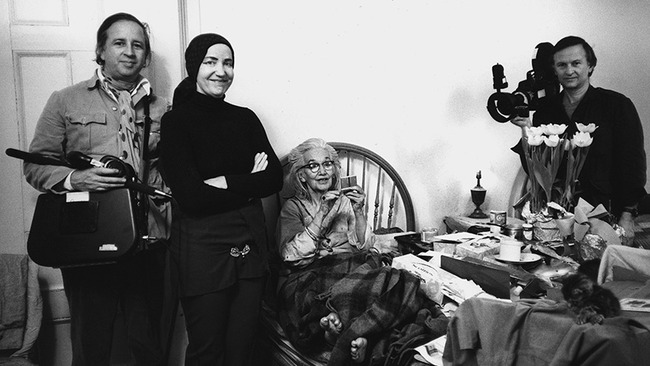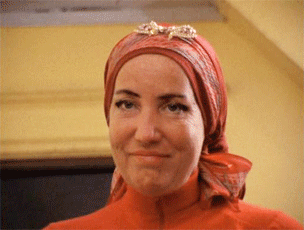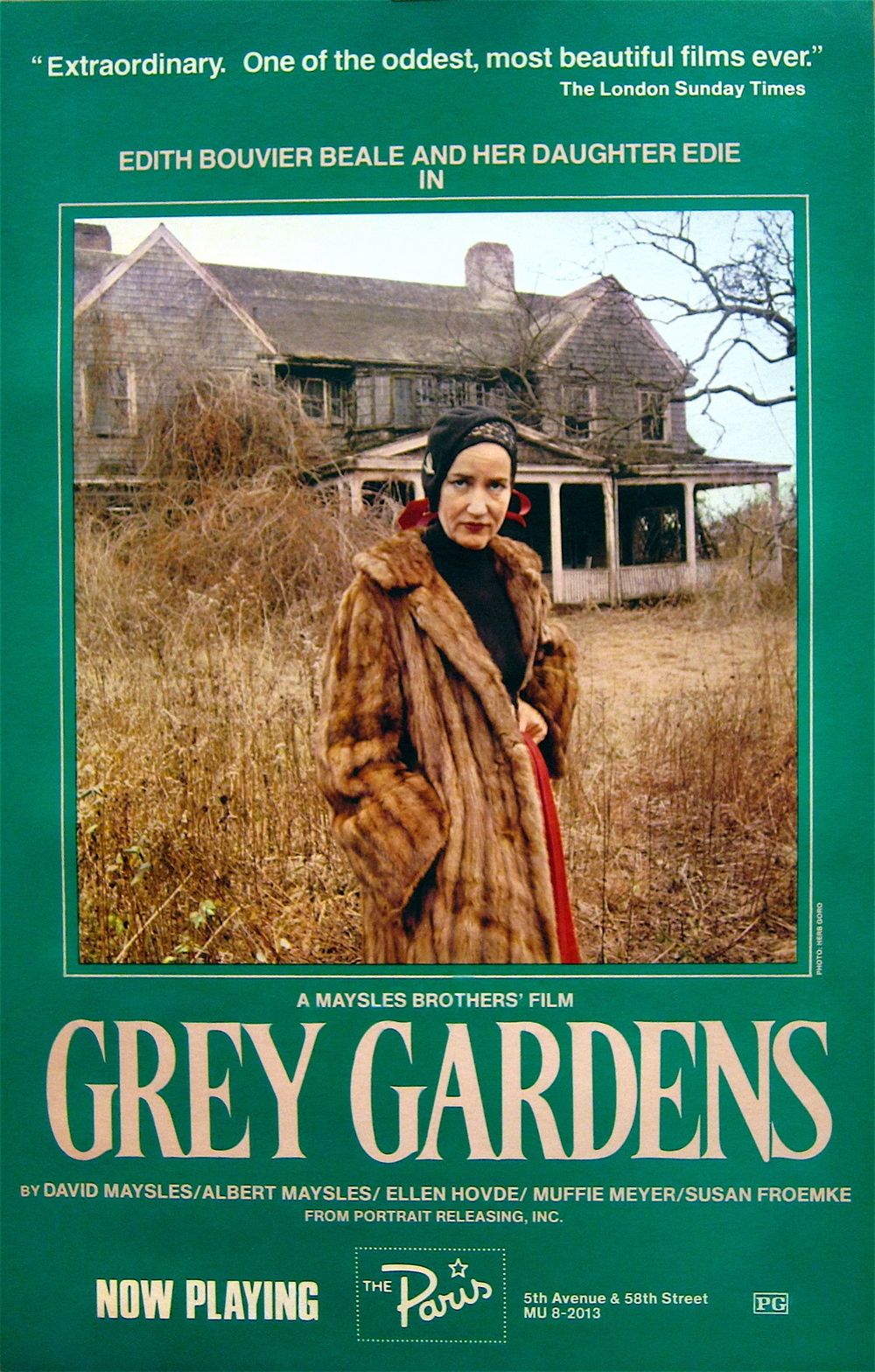“You get very independent when you live alone. You get to be a real individual.”
– Big Edie
In 1975, Big Edie and Little Edie Bouvier Beale showed everyone how to really shelter in place. Grey Gardens, a documentary by Albert and David Maysles about the reclusive mother-daughter duo (aunt and first cousin to Jackie O), lovingly depicts the former upper-class Hamptons’ doyennes then living in isolated squalor, with requisite horde of cats and raccoons scampering about.
Behind the towering privets that surround their decaying 28-room mansion, a place so far gone that the local authorities once threatened to evict them for violating building and sanitation codes, mother and daughter lived in a world of their own. Having only each other for company over 20 years (with an occasional guest or ‘marble faun’ dropping by) the Edies had descended into a curious life of dependence and eccentricity that no one had ever shared until the Maysles arrived.
The Beales, however, were most definitely ready for their moment in the sun. Little Edie coquettishly parades her trademark improvised turbans secured with intricate brooches, and her wildly original ensembles (like her knotted and safety-pinned skirt she can whip into a cape at a moments’ notice) inspired high fashion magazine portfolios. Most entertainingly, she launched quotable on-camera bon mots at the drop of a hat: “This is the Revolutionary costume! I never wear this in East Hampton!” Big Edie, a trained soprano in her young bohemian days, serenades with romantic songs of yesteryear in a slightly wobbly, still rich voice. The women chatter, bicker, and flirt like characters out of Tennessee Williams or Eugene O’Neill in this bittersweet love story, a moving record of the powerful and complex relationship between these truly individual and independent spirits.
So pour yourself a refreshing gin cocktail, prep some classic finger foods inspired by the “paté”- loving Beales, and take in this tangled tale of “two classic eccentrics, two people who refuse to live the way they’re supposed to, but by the film’s end we see that they live fully, in ways of their own choosing” – Roger Ebert
Grey Gardens can be viewed on HBO Max, Amazon Prime, The Criterion Channel, YouTube, Vudu, Kanopy, Google Play and AppleTV






